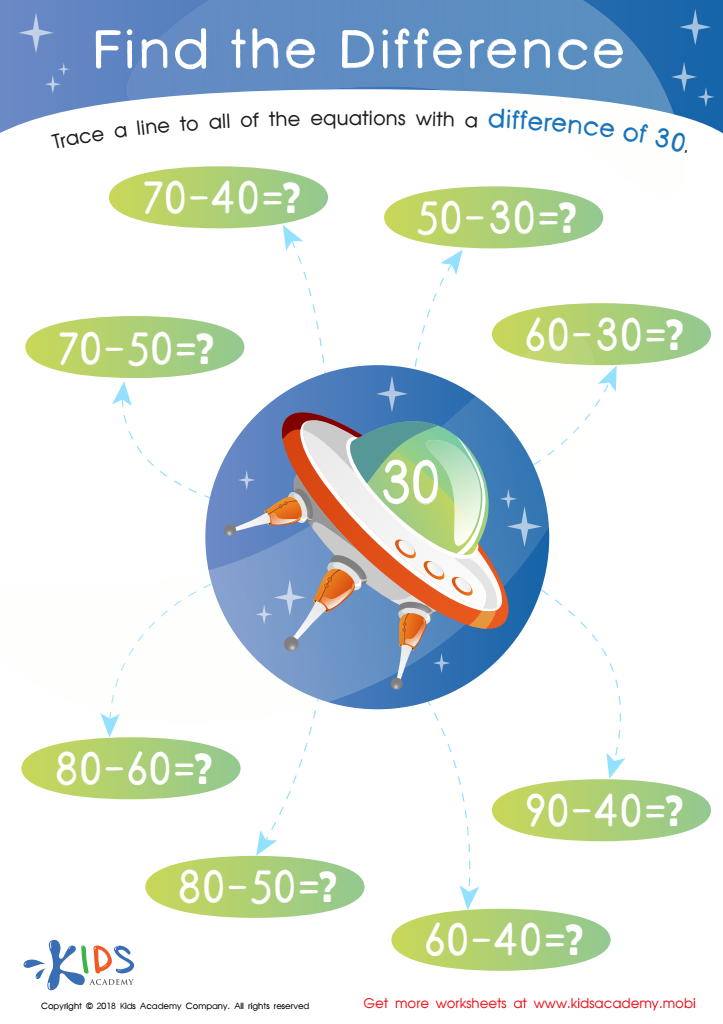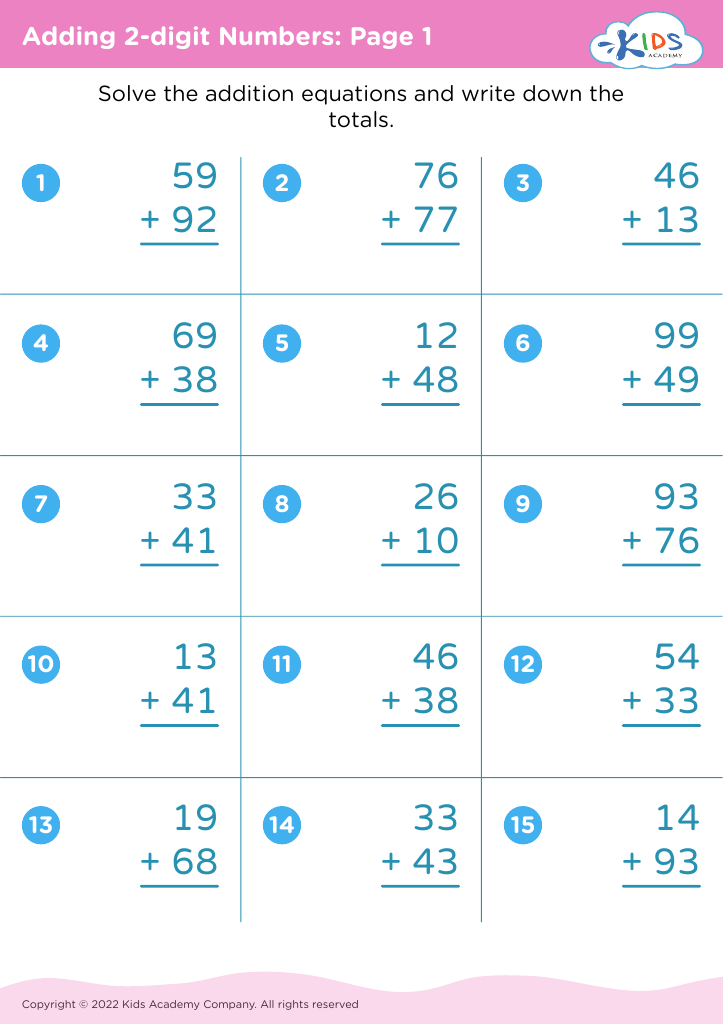Recognizing numbers Addition & Subtraction Worksheets for Ages 7-8
4 filtered results
-
From - To
Enhance your child's math skills with our Recognizing Numbers Addition & Subtraction Worksheets for ages 7-8. Designed to reinforce foundational numeric concepts, these engaging worksheets help children practice identifying numbers while developing essential addition and subtraction skills. Each worksheet provides a variety of fun activities tailored to keep young learners motivated and excited about math. With colorful visuals and age-appropriate challenges, your child will cultivate confidence and proficiency in essential math concepts. Perfect for classroom use or at-home practice, our worksheets support enjoyable learning experiences and solidify your child's understanding of numbers. Unlock the joy of math today!


Find The Difference Worksheet
Recognizing numbers and mastering addition and subtraction are foundational skills crucial for children aged 7 to 8. This developmental stage is key, as children begin to build upon their early arithmetic knowledge, transitioning from basic understanding to more complex problem-solving abilities. Parents and teachers should prioritize these skills for several reasons.
Firstly, numeracy is essential for everyday activities, from budgeting pocket money to measuring ingredients in cooking. Early competence in addition and subtraction equips children with the tools to navigate daily life confidently.
Secondly, these mathematical skills lay the groundwork for further academic success, particularly in subjects like science, technology, and even the arts. Proficiency in arithmetic sharpens cognitive abilities, enabling children to tackle more complex concepts in future grades.
Finally, developing a strong number sense fosters a positive attitude towards math. When children grow comfortable with numbers, they're more likely to engage in math-related challenges, reducing anxiety and enhancing their ability to approach more advanced topics. Ultimately, encouraging fluency in addition and subtraction not only boosts academic performance but also builds essential life skills that contribute to independence and critical thinking. Engaging children at this age lays the groundwork for a confident and competent future.
 Assign to My Students
Assign to My Students
























